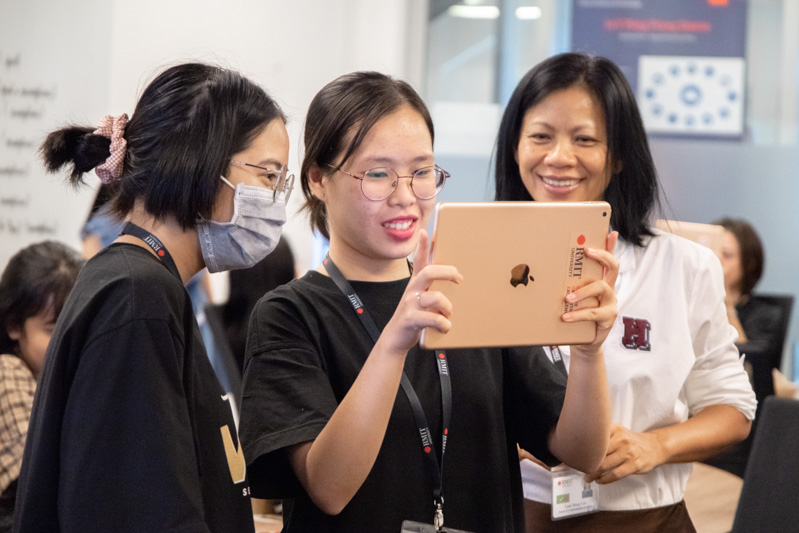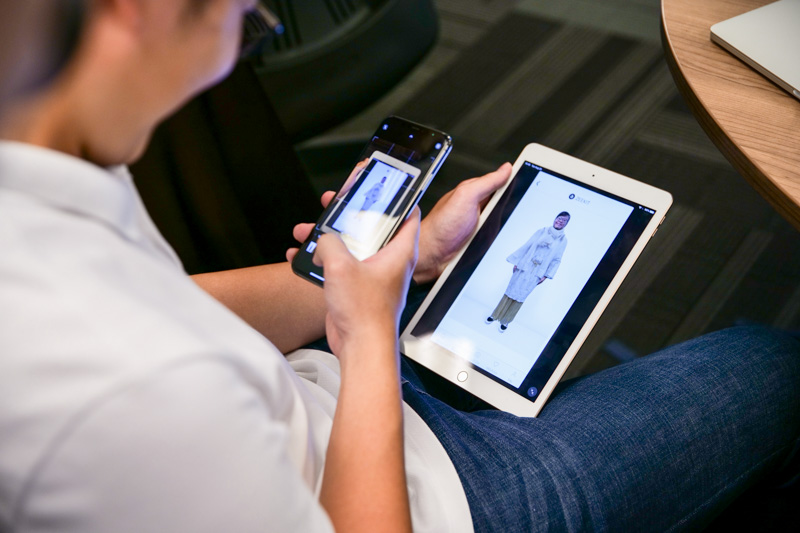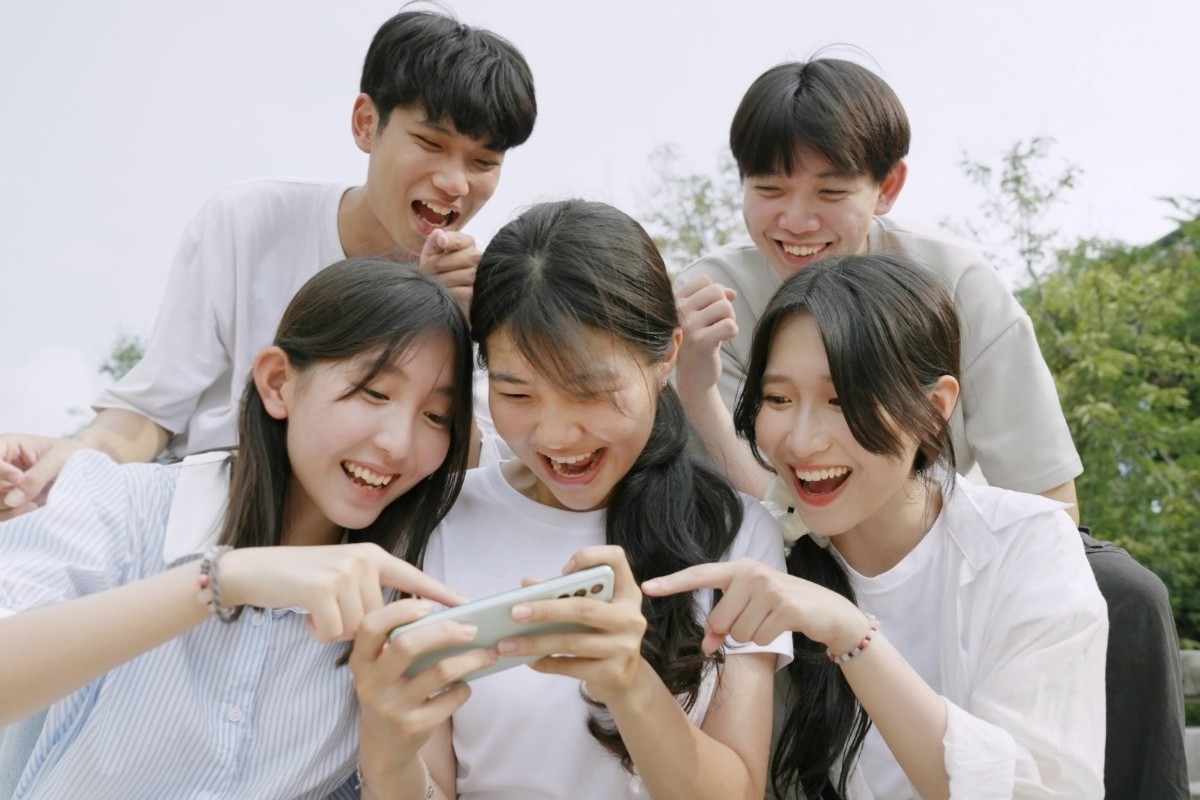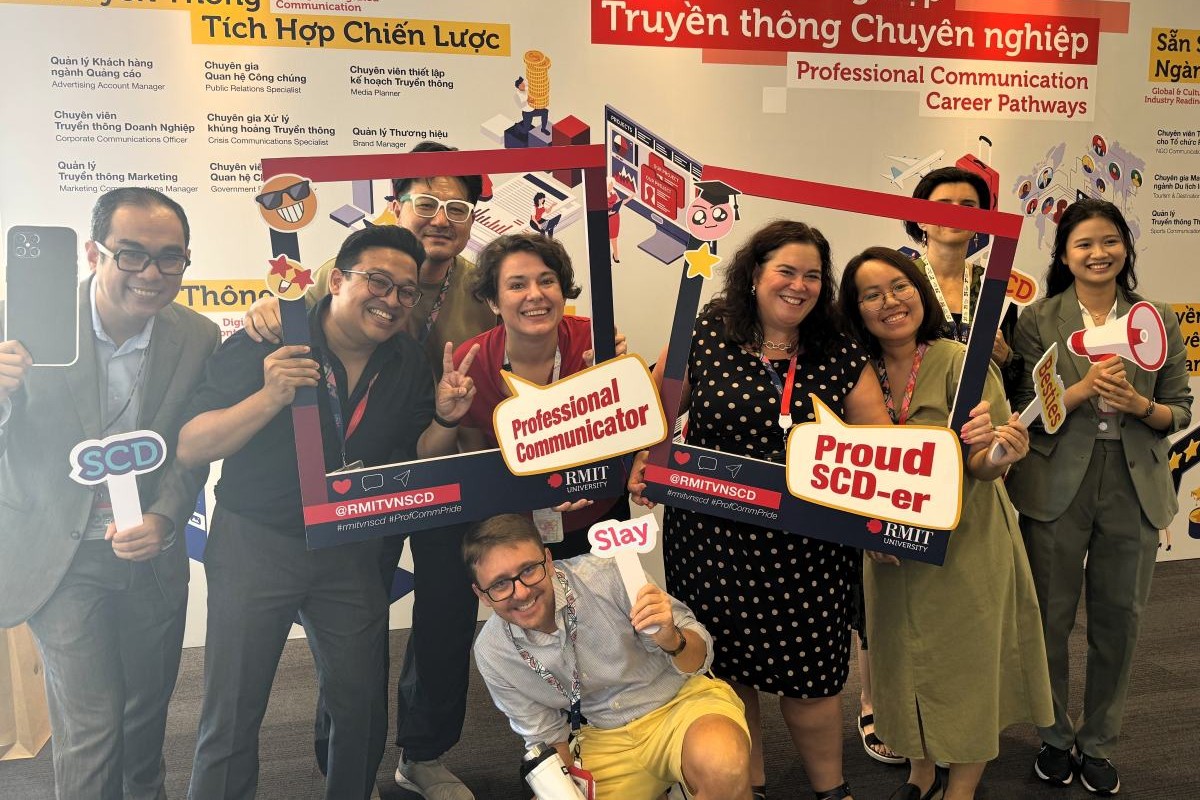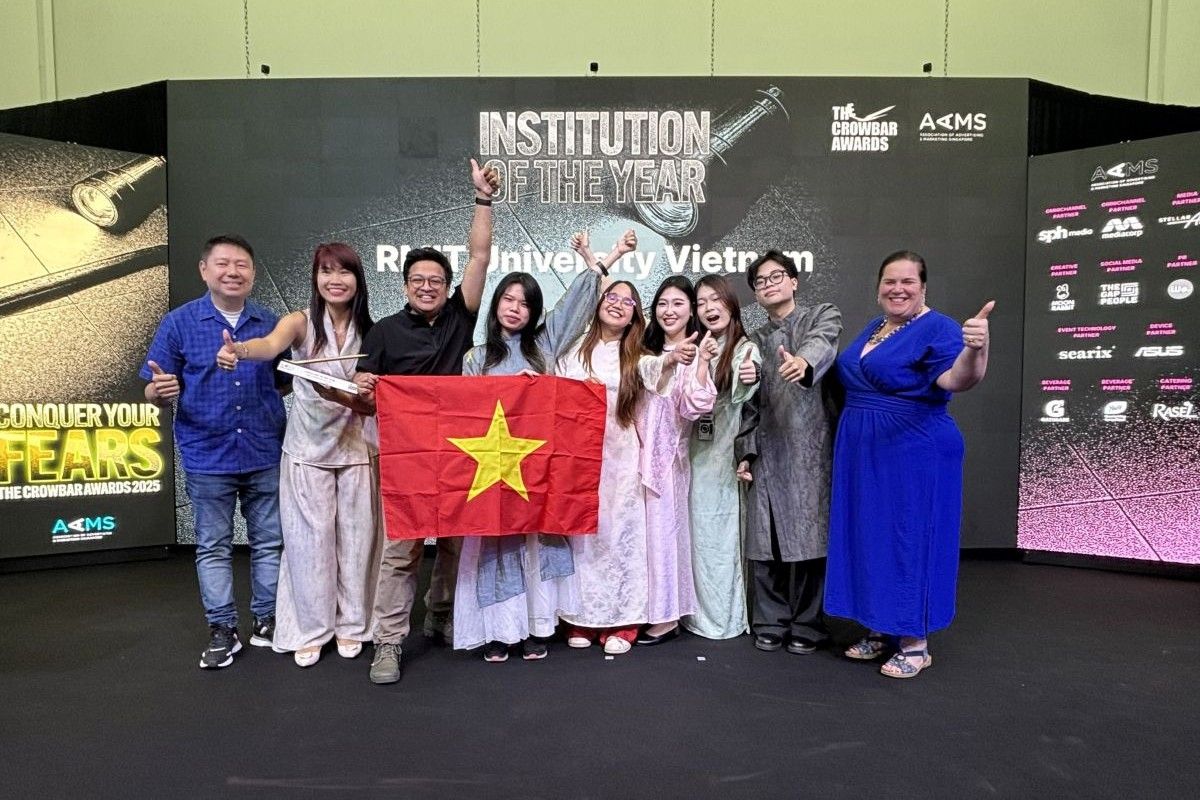Now the challenges of COVID-19 have accelerated the role of Virtual Reality (VR), Augmented Reality (AR) and Mixed Reality (MR) to a place that’s fast becoming ‘the norm’ in the fashion industry.
While the retail sector needed to quickly respond to new social distancing behaviours and a global economic slow-down in 2020, RMIT’s Bachelor of Fashion (Enterprise) program worked with the Centre of Digital Excellence (CODE) to introduce a virtual fitting room and fashion show application to RMIT students to prepare them for life in a post-COVID-19 world.
The app allows students to consider, imagine and experience a new approach to retail marketing in response to significant shifts in consumer behaviours.
RMIT’s School of Communications & Design Associate Lecturer Lam Hong Lan said the course that introduced the app, Digital Fashion Marketing Strategies is designed to develop the knowledge and skills required to become a successful digital fashion marketer.
“The landscape of fashion in the digital age was of course evolving before COVID-19, but the pandemic has accelerated that,” she said.
“So I think it’s crucial for us to be ahead of the game by bringing our students not only the creative and commercial skills to succeed, but exposure to the most advanced technology to support them as they develop strategies for online marketing, including social media.
“We’ve been able to introduce our students to many case studies from leading markets in fashion technology from the UK, China, and South Korea, and the activities from CODE helped bring them to life.”
RMIT’s Head of CODE Associate Professor Jerry Watkins said the centre focuses on solving problems through innovation, and “worked closely with the Fashion program to introduce a range of immersive technologies” to cater to students’ real-world learning needs.
“Retail is a sector that is particularly challenged by both social distancing and economic slow-down,” he said.
“The kind of apps we introduced can provide a powerful solution for fashion SMEs to connect with their customer base, and empower the industry to function in a range of different environments in the face of uncertainty.”

